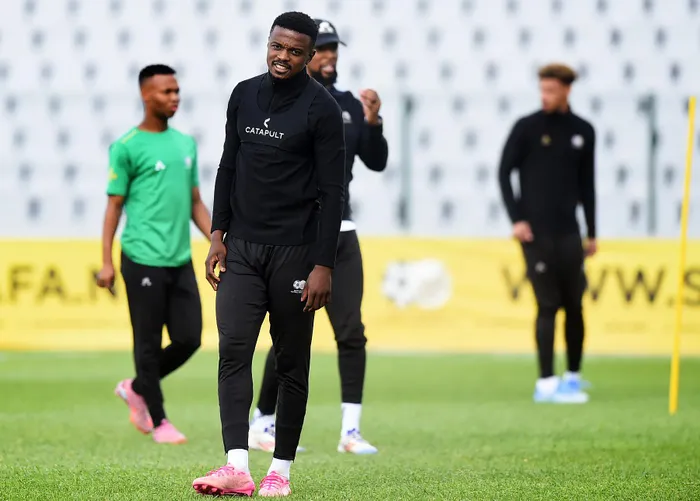The fallout of SAFA's Bafana Bafana appeal: A deep dive into FIFA's governance
COMMENT

BAFANA Bafana midfielder Teboho Mokoena will be expected to show his mettle in the upcoming Fifa World Cup qualifiers against Zimbabwe and Rwanda.
Image: Itumeleng English/ Independent Newspapers
The South African Football Association (Safa) finds itself in the eye of a storm after its decision to appeal against Fifa’s yellow-card penalty for fielding an ineligible player during a World Cup qualifier.
The move has sparked a cacophony of condemnation, leaving Safa in a position where it is “damned if you do, damned if you don’t.”
Die-hard supporters and critics alike are divided over the course of action. While many believe Safa is justified in attempting to challenge what they perceive as an unjustly harsh sanction, others argue that the funds spent on the appeal could be more effectively utilised elsewhere.
There is also scepticism about the viability of the bid for justice, as experts point out that Fifa rarely revisits or reverses its decisions.
The controversy stems from an incident on March 21, 2025, during a World Cup qualifier against Lesotho, where Bafana Bafana inadvertently fielded an ineligible midfielder, Teboho Mokoena.
Safa’s argument hinges on the fact that no formal protests were lodged by any member countries regarding Mokoena’s eligibility.
Mokoena received yellow cards on November 18, 2023, and June 11, 2024, which should have triggered an automatic one-match suspension. This suspension ought to have been enforced 283 days later, during the fixture against Lesotho on March 21, 2025.
Upon realising the error, Safa excluded Mokoena from the subsequent match on March 25, 2025. The association contends that Fifa’s decision — invoked ex officio, meaning without a formal complaint — raises questions about procedural fairness.
Adding to the confusion, Safa is baffled by Fifa’s decision to act more than a year after the alleged infringement. The delay, they argue, complicates the matter further and strengthens their position that the absence of formal complaints should weigh in their favour.
Critics, however, claim the appeal is little more than a distraction from deeper problems within South African football. They argue that the energy and money spent on legal wrangling could be better directed towards development and governance reform.
The heart of Safa’s frustration lies not only in the penalty itself but also in its execution. As the appeal process unfolds, the association has called for greater transparency from Fifa, demanding an explanation for what it views as a delayed and inconsistent ruling.
Safa’s insistence on pursuing justice is clear, but the growing storm of criticism raises uncomfortable questions about whether this fight serves the good of South African football — or simply deepens the divide within it.
Related Topics: